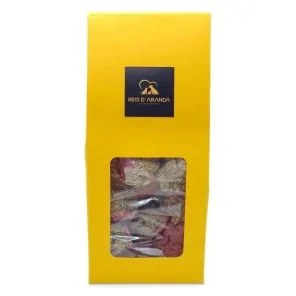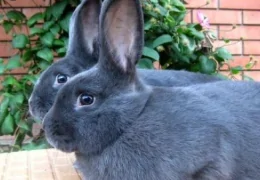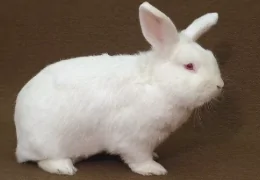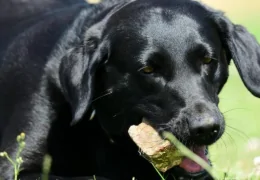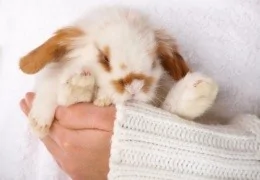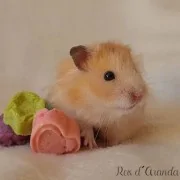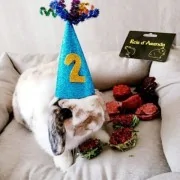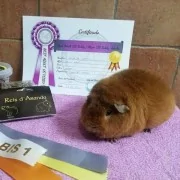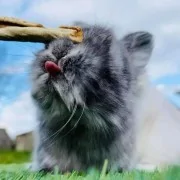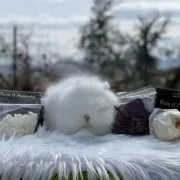Its name says it all: the Vienna blue rabbit comes from Austria. Not only is it beautiful with its shiny blue-grey...
VESTIBULAR SYNDROME IN RABBITS
INTRODUCTION
Vestibular syndrome’ is one of the most common conditions that can be seen in veterinary practices or in social media groups. This ‘disease’ is not a disease as such but a manifestation that something is wrong and can have many causes.
WHAT IS VESTIBULAR SYNDROME?
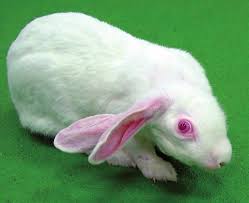
Vestibular syndrome is a neurological condition characterised by a tilting of the head (partial or total). This symptomatology is due to an involvement of the central or peripheral nervous system, respectively; in both cases, vestibular syndrome may be accompanied by other neurological symptoms:
- Nystagmus: involuntary sideways or up-down pupillary movements.
- Walking in circles
- Falls (due to loss of balance)
WHAT CAUSES VESTIBULAR SYNDROME?
Vestibular syndrome can arise as a result of many diseases, which can be more or less serious.
- Encephalitozoon Cuniculi (E.Cuni)
- Otitis
- Masses in the middle or inner ear
- Masses in the brain
- Trauma
The most common cause is E.Cuni followed by otitis (which can occur in any breed and crossbreed).
WHAT ARE THE CONSEQUENCES OF VESTIBULAR SYNDROME?
Vestibular syndrome’ has several consequences although the real problem lies in the cause behind the “vestibular syndrome” itself.
Because the brain and balance are affected, the rabbit suffers great stress in not being able to walk properly, may have difficulty eating or drinking (which would cause the rabbit to suffer from malnutrition and dehydration, triggering intestinal stoppages, gas production in the intestine and important renal damage), as well as more or less serious trauma due to falls.
Many rabbits die, but not because of ‘vestibular syndrome’ but because of what is causing it and its consequences.
CAN A RABBIT WITH VESTIBULAR SYNDROME RECOVER?
Recovery depends a lot on the cause of the vestibular syndrome (otitis is not the same as cancer or E.Cuni), on how quickly it is treated and on the animal itself.
Many rabbits recover from ‘vestibular syndrome’ although most of them do not manage to straighten their heads completely, many others never recover although they can live for many years as long as their owner makes things a little easier for them (they become ‘disabled rabbits’).
In the meantime, the best thing to do is to offer our rabbit a floor where he cannot slip (carpets) and that the light in the room is as soft as possible, as our rabbit will be dizzy and it is better for him to be calm, separated from other animals or environments which could upset him.
CONCLUSION
The ‘vestibular syndrome’ is a very important sign that there is something wrong with our rabbit, as soon as we observe the slightest turn of the head we have to go to the vet and take it very seriously, especially if it is E.Cuni and we have more rabbits at home.
Leave a comment
Log in to post comments


